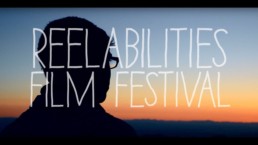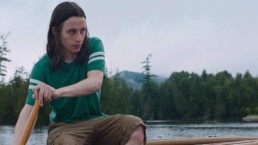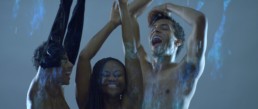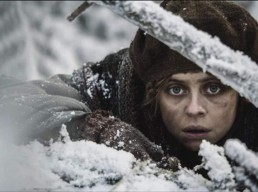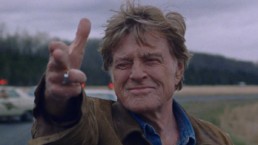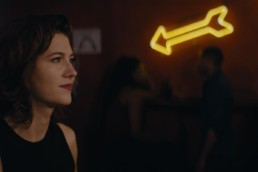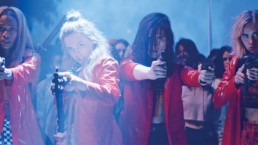'A Star is Born' Review: An Emotional Supernova
Since its debut at the Venice Film Festival, A Star Is Born has been hot on the lips of anticipating fans worldwide.
In his directorial debut, which hits theaters everywhere this Friday, Bradley Cooper has not only created a visually stunning awards-worthy feature- which was given an eight-minute standing ovation when it premiered in Venice- but a fantastically observant and delicate movie musical. Starring Lady Gaga like you've never seen her before, A Star is Born is a wonderful remake of the 1937 classic of a timeless love story but with a 2018 modern twist.
Jackson Maine (Cooper) is rock n roll's bad boy, a swoon-worthy crooner on stage, but a heavy drinking and lonely man when off of it. During a spontaneous visit to a late-night bar, he meets the alluring Ally (Lady Gaga) and upon hearing her rendition of La Vie En Rose, he immediately falls under her spell, seeing the potential in her music, even though she doubts herself. As the supportive partner we all aspire to have in our lives, Jackson encourages Ally to live her dream and speak her truth, not just as a singer but also as a songwriter. Gaining notoriety very quickly from her undeniable talent, Ally skyrockets to fame but loses her authenticity as she bends to conventional pop star tropes while Jackson watches from the sidelines. With his own career floundering plus the dissolution of his relationship with his older brother (Sam Elliott), the stress becomes too much for Jackson to handle on his own, much less sober. His demons begin to take over, which force Ally into unfortunate situations. She finds herself at the peak of her career at the very same moment Jackson is at rock bottom, and their personal circumstances prove to have heartbreaking consequences.
If A Star is Born proves anything, it's that it is time we take Lady Gaga seriously as an actor.
A star was born in 1986 and her name, or stage name, is Lady Gaga. In a role made famous by Barbara Streisand, Lady Gaga, born Stefani Joanne Angelina Germanotta, is one of the only few artists who could successfully pull off the all-encompassing and demanding role of Ally. She sings, dances, and acts so effortlessly, it feels as if this was the role she was born to play. This isn't Gaga's first foray into acting, she won an Emmy in 2016 for her role in American Horror Story, but what surprised me most was how she completely transformed into Ally. Especially in the earlier scenes before she becomes a "star," Gaga gets lost in Ally's insecurities and body shaming, and it's hard to imagine her as Mother Monster, or Joanne, or a celebrity superstar at all. If A Star is Born proves anything, it's that it is time we take Lady Gaga seriously as an actor.
Being that this is Bradley Cooper's directorial debut, it's understandable that he would want to soak up every moment of the experience. His decision to shoot mostly in close-ups is an interesting choice and lends to both a feeling of suffocation at the height of fame while also the connection and closeness of Ally and Jack's relationship to music and each other. At times it can feel a bit self-indulgent, holding takes for what may seem a little too long (and it's questionable why he has a midwestern accent when he was born and raised in Arizona?), but nonetheless, the film checks all the right boxes, technically and emotionally. While the story is an adaptation and therefore his creative control can only stretch so far from the original story, Cooper succeeds in creating a full cinematic experience that stings with bitter realism and soothes with medicinal music.
For all the bells and whistles that come along with A Star is Born, it's very easy for me to pick the one moment that made my mouth drop. This moment stands out from every other scene in the film's 2-hour and15-minute runtime. That moment is the very first time Ally joins Jack onstage at his show and they sing Shallow. Their duet sends chills down my spine, even thinking about it now as I write this. That song is a symbol of strength, as a raw Gaga belts out the words at the top of her lungs and Cooper, in his gravelly voice, strums an acoustic guitar alongside her- acting as a pillar of strength.
A Star is Born is a fairytale, our protagonist a Cinderella. The film has gone through four remakes since the 1937 original, but this time, with Cooper at the creative helm, he brings to the big screen an emotionally charged, cinematic knockout that is arguably the most affecting version to date.
'A Star is Born' is rated R for language throughout, some sexuality/nudity and substance abuse. 135 minutes, In theatres everywhere this Friday.
ReelAbilities Film Festival | Exclusive Trailer
When we talk about inclusion and diversity, people with different abilities tend to get left out of the conversation.
The City of Los Angeles is on a mission to make sure that does not happen by producing an inaugural LA-based film festival that honors and highlights the disability community: ReelAbilities Film Festival.
The ReelAbilities Film Festival is the largest festival of its kind, promoting awareness and inclusion through the stories and artistic expressions of people with different abilities.
ReelAbilities Film Festival: Los Angeles 2018 will take place October 11-14, 2018 at locations throughout the city.
For more information please visit http://reelabilities.org/losangeles or on Facebook, Instagram, and Twitter @ReelAbilitiesLA
'Tea with the Dames' Review: Legends Unite
In director Roger Michell's documentary, Tea with the Dames, the legendary stage and screen icons Eileen Atkins, Judi Dench, Joan Plowright, and Maggie Smith candidly discuss their careers, friendships, and lessons they've learned along the way.
Just as they were back then, these artists continue to be a sign of independence and inspiration for future generations, and a much-needed symbol of strength for women in these trying times.
Despite their bustling careers and hectic schedules, the four Dames have always found time to meet in the English countryside to let their hair down, gossip, and catch up with each other. But this is the first time they have let cameras into the sacred space of their loose and relaxed banter. The result is an interview style, which includes breaking the third wall numerous times, lending to the film's overall feeling of inclusion along with admiration. In talking so candidly with the production crew and each other, the women let their guard down and give off the impression that we are all old friends, which is a warm, wonderful feeling.
"Whatever it is, it's too late," Maggie says with defeated breath.
"Oh," Joan exclaims, "but it's never too late."
Like a refined version of The View, or the "Pickalittle" ladies from The Music Man, the Dames are chatty, giggly, and honest. They talk openly about their fear of being approached to play Cleopatra, with Eileen and Joan flat out refusing to ever play the iconic character. Maggie admits she was terrified and only took the part in a Canadian production to escape harsh criticism elsewhere, and when Judi hesitantly accepted the part, people laughed openly at her performance. "Critics believe we think we're the bee's knees," Joan goes on to say, "...they don't know that we're shaking inside."
A fascinating retrospective of some of the most notable actresses in history, Tea With the Dames is a touching tribute to the women who contributed to shaping the dramatic arts. Pioneers in their own right with voluminous careers to reflect upon, the Dames are asked poignantly in the film’s finale if there was any advice they would give their younger selves. Joan says she would have liked to have discovered yoga and mindfulness at a younger age. Eileen says she would like to have listened more and quit her bad temper. Joan heartbreakingly says she would have tried not to be so susceptible to falling in love. Maggie admits she doesn't know what she would tell herself because she "wouldn't be listening anyway." After a laugh she answers more truthfully, her advice being "When in doubt, don't."
"Whatever it is, it's too late," Maggie says with defeated breath.
"Oh," Joan exclaims, "but it's never too late."
'Tea with The Dames' is not rated. 94 minutes. Now playing at Laemmle's Royal Theatre and streaming on Amazon Prime.
'Solace' Review: An Honest Reflection of Mental Health
Solace is a breath of fresh air.
With writer/director Tchaiko Omawale at the helm, this coming-of-age story doesn't tackle the stereotypical issues seen in many other young adult films. Here, Omawale pushes boundaries with Solace's progressive subject matter, which includes self-harm, eating disorders, and body dysmorphia, all set in the upper middle class of Ladera Heights, a predominantly African American community. The LA Film Festival is the perfect launching point for a film like Solace, and it's my hope that this film continues to be shown around the world because issues like the ones seen here are not exclusive to Los Angeles.
Seventeen-year-old Sole (Hope Olaide Wilson) is struggling. After her father's death, the New York City teen is ordered by the court to relocate to Los Angeles to stay with her last living relative, her maternal grandmother, Irene (Lynn Whitfield). Irene's church-going and preachy behavior doesn't sit well with the defiant Sole, whose atheist and vegan ways are consistently at odds with her elder. Sole feels like no one understands her, and so she turns to food for comfort. Binge eating takes the pain away, if only for a few moments.
'Solace', the newly announced LA Muse Special Mention and Best Ensemble Cast winner, stands out as a great independent film with a fantastically relevant social message.
Looking for a way out of LA, Sole discovers a performance art grant that promises a trip back to New York. Desperate to go back to the life she had, Sole recruits her next-door neighbors Jasmine (Chelsea Tavares) and Guedado (Luke Rampersad), who also seem to be societal misfits, to help her achieve her goal of getting the grant. It's while working with them that Sole finds solace in this chosen family while simultaneously discovering herself along the way.
Acknowledging and overcoming self-destructive behaviors is at the heart of Solace, and the most important take away is realizing that we all struggle with something. External behavior doesn't necessarily reflect the emotional struggle one may be going through, regardless of age, gender, and race. Hope Olaide Wilson's performance is strong and heartfelt, making her a character we can all find a way to relate to.
Solace is a bold new voice in the filmmaking arena and with its timely message of women taking a stand and having their voices be heard, director Tchaiko Omawale has not only made a great film with distinctively stylish cinematography, but also an honest reflection of mental health. Solace, the newly announced LA Muse Special Mention and Best Ensemble Cast winner, stands out as a great independent film with a fantastically relevant social message.
'Solace' is not rated. 81 minutes.
'Ashes in the Snow' Review: Big, Bold, and Beautiful
Having its world premiere at the LA Film Festival, Ashes in the Snow is not for the faint of heart.
This coming of age story is a heartbreaking tale of innocence and young love set against the brutally cold and dismal backdrop of remote Siberia. In director Marius Markevicius' historical drama, based on the novel Between Shades of Gray by Ruta Sepetys, one teenager's resilience and passion for finding the will to create art even in the darkest of situations is a touching and tender watch.
Set in 1941, in the middle of WWII, sixteen-year-old Lina (Bel Powley) is a talented artist living at home in Lithuania with her mother, Elena (Lisa Loven Kongsli), father, Kostas (Sam Hazeldine), and younger brother, Jonas (Tom Sweet). One unsuspecting night, a group of Soviet officers kidnaps the family from their own home and forcibly puts them, along with hundreds of other captives, on a train to one of Joseph Stalin's work camps in Siberia. Devastated and confused, yet trying to be strong for her mother, Lina realizes that continuing to create her art could lead to freedom, if not physically, then at least mentally.
Ashes in the Snow is a great character study of the depths of humanity and the duality of man's capabilities when put in situations with dire consequences. Screenwriter Ben York Jones, who recently added creator credit to his resume with the Netflix series Everything Sucks!, is no stranger to developing passionate and affecting love stories. A frequent collaborator with director Drake Doremus (Newness, Like Crazy), Jones brings visceral heartache and layered character complexity to this independent film, proving once again that a good love story can transcend time.
The colors are crisp and bold, the landscape is vast and unrelenting, and even the dirt that covers the Lithuanian's faces can't hide their beauty.
The conflict between Lina's mother, Elena, and the baby-faced young Soviet soldier Nikolai Kretzsky (Martin Wallström) provides much of the film's electric tension. Nikolai confides to Elena that he shares her feelings of frustration about the position he has been put in. However, their shared feelings toward their mutual circumstances aren't enough to form any sort of bond or sympathy. The two develop a dysfunctional relationship that stands in complete contrast to the evolving relationship Lina finds herself in with a fellow prisoner, Andrius (Jonah Hauer-King). A slight nod to the Shakespearean dilemma of two lovers being torn apart by their surroundings, their optimism is a much-needed signal of strength.
The colors are crisp and bold, the landscape is vast and unrelenting, and even the dirt that covers the Lithuanian's faces can't hide their beauty. A powerful story that is equally matched with breathtaking cinematography and a haunting score from German pianist and composer Hauschka (real name Volker Bertelmann), Ashes in the Snow is a cinematic triumph.
'Ashes in the Snow' is not yet rated. 98 minutes.
'The Old Man & The Gun' Review: Smooth Criminal
Most senior citizens find excitement in winning Bingo at their local community rec center, but not Forrest Tucker.
No, this 70-year-old finds joy and satisfaction in robbing banks. In the highly anticipated film from director David Lowery, The Old Man & The Gun is a high energy, high stakes crime comedy that feels like The Place Beyond the Pines set a few decades in the past and with Ryan Gosling aged about 50 years. But what is most fascinating about Forrest Tucker and The Old Man & The Gun is that this unbelievably fascinating story is (mostly) true.
In his final acting role, the charming Robert Redford plays Forrest Tucker, an American career criminal who spent his whole life getting thrown into and breaking out of prison, 18 times to be exact. When we meet him, he had already escaped from California's San Quentin State Prison via a handmade kayak (with the slogan 'Rub a Dub Dub' etched into the side) and was knee deep in completing a sling of successful bank robberies. At 70-years-old, he, along with his two aging accomplices Waller (Tom Waits) and Teddy (Danny Glover), is the perfect criminal. Not only because he looks totally incapable of making off with thousands of dollars at gunpoint, and therefore has been overlooked by police for years, but because he is just so gosh darn nice to his victims. He is a criminal with a heart of gold.
His niceness also wins over the heart of Jewel (Sissy Spacek), a woman he meets while dodging the boys in blue. Forrest proves that he can be both a gentleman and a robber, and this paradox makes for such an enjoyable character arc as he is faced with the highs and lows of his unconventional profession. One person who isn't so amused with his antics is Officer John Hunt (Casey Affleck), a 40-year-old family man who finds himself two steps behind the senior citizen criminals, who he's dubbed the "Over the Hill" gang. Despite Forrest being the "bad guy" (technically speaking), I found myself rooting for his success and honestly, in a twisted way, it seems as if John Hunt wants Forrest to succeed as well.
Forrest proves that he can be both a gentleman and a robber, and this paradox makes for such an enjoyable character arc as he is faced with the highs and lows of his unconventional profession.
Director David Lowery is a master at incorporating poignant musical artists in his films. In 2017's A Ghost Story, he used the L.A.-based indie band Dark Rooms to bring the moodiness and mystic with their song I Get Overwhelmed (which has since become of one my favorite emo anthems). The Pete's Dragon soundtrack includes an eclectic group of artists, incorporating the specific sounds of Leonard Cohen, St. Vincent, and The Lumineers. In The Old Man & The Gun, Lowery continues this fantastic merging of mediums by using an unexpectedly fitting uptempo jazz score throughout the film. What really knocks it out of the park is the use of Jackson C. Frank's Blues Run the Game, in its original recording, during a final chase montage. The crackling of the vinyl and the smoothness of Frank's voice is the perfect compliment to Tucker's aesthetic and one of the film's more memorable moments.
Lowery has created a brilliantly entertaining and rich film with The Old Man & The Gun. From start to finish, Robert Redford captivates with his charming personality and confidence. It is also refreshing to see a love story unfold between Forrest and Jewel. That initial spark that ignites when you realize you've met "the one" is usually only seen between younger characters, but Lowery gives the older generation another chance to experience this delicate part of life, proving you're never too old for love... and money.
'The Old Man & The Gun' is rated PG-13 for brief strong language. 93 minutes. Opening this Friday at ArcLight Hollywood and the Landmark.
'All About Nina' Review: Little Girl Lost
As a female director in the stereotypically "man's world" of filmmaking, Eva Vives knows a thing or two about standing out.
In a male-dominated industry, many women find it challenging to be taken seriously based on her gender. Vives takes this struggle to the stage in her first feature-length film All About Nina, a story that combines heart and humor with the reminder that nothing is out of reach with the determination to succeed and a drink now and then for when the times get a little tough.
It's hard enough out there for a comedian, and nobody knows that better than 33-year-old New Yorker Nina Geld (Mary Elizabeth Winstead). Known as the girl who talks about having sex, wanting sex- basically anything sex-related. Her material may be provocative and profanity-ridden, but she worked hard to get to where she is and embraces every laugh and giggle as validation of her success. While her onstage persona may be on track, off the stage, she is a little girl lost. It is common for her to get drunk after stand-up sets, taking home random men, and all the while partaking in an unconventionally dysfunctional affair with a married man (Chace Crawford). When the chance for a fresh start in Los Angeles presents itself, Nina packs up and heads to the city of angels without hesitation.
Sometimes, one needs to have an emotional breakdown to have a breakthrough.
The people she surrounds herself with make all the difference for Nina. Landing in Silver Lake, her housemate Lake (Kate del Castillo) acts as the hippie mother-figure she always wanted, and her new love interest Rafe (Common) shows her what true love and support feels like. Of course, Nina's previous baggage begins to infiltrate her newly curated life, as she questions if the happiness she feels is real or superficial. But the bigger question is still- does she deserve this newfound happiness?
Right off the bat, an obvious comparison to All About Nina is the Jenny Slate-starring film Obvious Child. Both Slate and Mary Elizabeth Winstead play young women navigating the choppy waters of the comedy scene in the big city and the mental torture they endure from their romantic relationships (both past and present). In this role, Winstead shines as Nina. She is not only traditionally funny with her spot-on celebrity impressions and well-timed jokes but is also able to play up Nina's vulnerabilities and insecurities, making her a protagonist worth caring about. Any other actress in this role could have been off-putting or too biting, but Winstead is likable enough that even at Nina's worst, we still root for her. It also helps that she's not afraid to get dirty, speak crudely, and look silly on stage.
Working through internal pain by way of comedy is a formula every comedian knows well, and All About Nina is a great example of dealing with life's struggles. Sometimes, it just takes an emotional breakdown to have a breakthrough.
'All About Nina' is rated R for strong sexual content and language throughout, some nudity and brief drug use. 97 minutes. Opening this Friday in select theaters including AMC Sunset 5.
'Assassination Nation': Hell Hath No Fury Like A Teenage Girl Scorned
"This is the story of how my town, Salem, lost its fucking mind."
From the very first shot, director Sam Levinson doesn't shy away from putting it all out there in Assassination Nation (which includes a "trigger warning" message, for those wondering what exactly this wild 110-minute ride will contain). In this provocative story about how a group of teenage girls fell victim to a county-wide hacking incident and then found themselves on the receiving end of the chaos, Assassination Nation is a delightfully disturbing film with a (pun intended) killer soundtrack to match.
Lily (Odessa Young) and her friends, Bex (Hari Nef), Sarah (Suki Waterhouse), and Em (Abra) are typical, albeit incredibly stylish, teenage girls. They flirt with boys via texts and at booze-fueled parties, and have complicated relationships with their parents and classmates. The social media age they live in has them growing up way too fast, with a false sense of security that what happens online, stays online. The hacking starts small. First, it's the town's Mayor whose closeted gay, kink lifestyle gets exposed. Then it's high school principal Turrell (Colman Domingo) whose seemingly innocent photos of his underage daughter are suddenly viewed as child pornography. Salem County is imploding from the inside with the deepest darkest secrets of its residents, but things get personal for the girls when Lily's private text messages between her and her mysterious "Daddy" are plastered all over the internet- provocative pictures and videos included. Despite being a victim herself, Lily and her friends are getting blamed for the hack, and soon realize that with that blame comes a potentially deadly outcome.
Think Ingrid Goes West meets It Follows meets Netflix's 13 Reasons Why with a modern day twist on the Salem Witch trials of 1692 and you'll have a slight idea of what to expect in Assassination Nation. Odessa Young gives a powerful performance as the protagonist who is a no-holds-barred badass. Hari Nef as Bex steals every scene by balancing confidence and vulnerability. The film wouldn't be the same without its supporting actors Bill Skarsgård, Joel McHale, and Bella Thorne, and they bring the thrills, chills, sex, scandal, violence, and vengeance to new heights.
Perhaps one of the more influential soundtracks to assist any film this year, every piece of music in 'Assassination Nation' compliments the film's DGAF attitude of teenage angst and anti-establishment.
Levinson's directorial approach to telling the story of Assassination Nation is unexpectedly theatrical. He incorporates clever lighting techniques that are usually reserved for a performance on the stage, like dimming the brightness to signal a sudden shift in action. Incorporating a three-way split screen to simultaneously show the characters and their whereabouts feels fresh and progressive. The inclusion of one-take shots, most notably the scene inside and around Em's home, are breathtaking. It demonstrates his creativity as well as technical skill, and the result makes for many memorable moments.
Last but not least, the soundtrack. Perhaps one of the more influential soundtracks to assist any film this year, every piece of music in Assassination Nation compliments the film's DGAF attitude of teenage angst and anti-establishment. Fuzzy electric guitars and pulsing bass lines are prevalent throughout the film and provide an emotional release to the girl's feeling of entrapment and desperation. A powerful score from composer Ian Hultquist (who is also a founding member of the band Passion Pit) relies heavily on synth and trap beats that perfectly play to the images onscreen. Music supervisor Mary Ramos balances these heavier audible moments with more delicate songs that give the film breathing room, most notably the inclusion of ANOHNI's 'In My Dreams.' I also highly recommend staying through the credits, you wouldn't want to miss iconic marching band, The Sonic Boom of the South's, rendition of Miley Cyrus' 'We Can't Stop.' That song has never sounded better.
Assassination Nation is a cinematic feast for the senses. Visually, audibly and beyond, we are violently thrust into Levinson's chaotic world that, at times, doesn't feel far off from our own. There is no doubt that the film's inspiration stemmed from the current state of affairs and the ongoing fight against righteousness and hypocrisy. It isn't the violence and bloodshed that makes Assassination Nation a "thriller," it's the fact that this could be our future if we're not careful about our actions today.
'Assassination Nation' is rated R for disturbing bloody violence, strong sexual material including menace, pervasive language, and for drug and alcohol use - all involving teens. 110 minutes. Opening this Friday in theaters everywhere.


